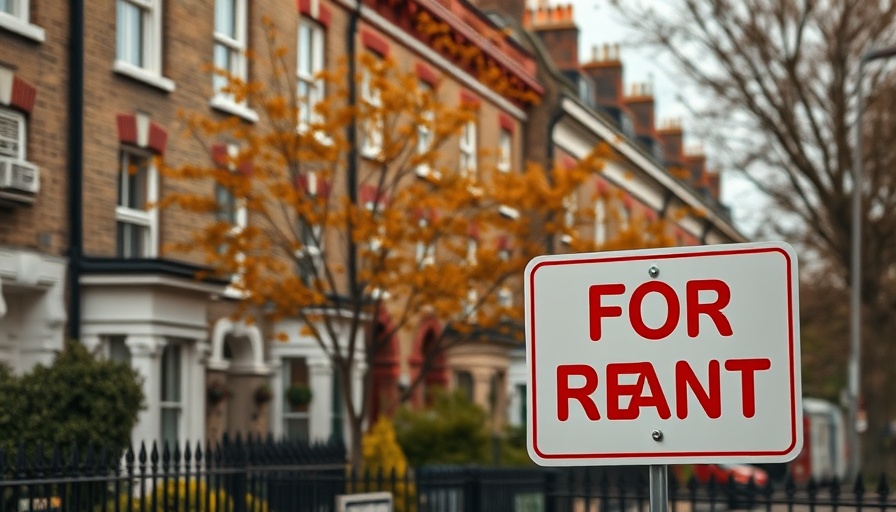
Understanding Planning Permissions: What Every Landlord Should Know
In recent years, the landscape of property management in London has seen significant scrutiny from local councils, especially in areas like Barking and Dagenham. The case of Ijaz Hussain, who was fined £20,000 for illegally converting a single-family home into two self-contained flats without appropriate planning permission, serves as a crucial reminder of the importance of adhering to local regulations. Landlords should familiarize themselves with necessary planning permissions to avoid hefty fines and potential legal troubles.
The Impacts of Illegal Conversions on Communities
Illegal property conversions not only jeopardize landlords' finances but also disrupt neighborhood dynamics. The unlawful rental of subdivided properties can lead to overcrowding, increased noise, and strain on local resources—factors that contribute to community discord. Councillor Syed Ghani emphasized, “Our Planning Enforcement Team is committed to ensuring that housing standards are upheld…” illustrating the proactive stance councils are taking to protect local communities.
Common Mistakes Landlords Make and How to Avoid Them
Landlords often overlook the requirement for planning permission when renting out properties. This oversight can stem from misconceptions about local laws or a lack of awareness regarding the correct application procedures. Additionally, some landlords believe that minor interior modifications don't require permission. To avoid penalties like Hussain's, prospective landlords should consult with planning authorities and consider attending local workshops on property management.
The Growing Need for Improved Housing Standards
As rental demands increase, so too does the necessity for sustainable and safe housing standards. The trend toward eco-friendly living means landlords need to balance profitability with compliance. Adopting practices that engage sustainable design will not only meet regulations but appeal to the growing demographic of environmentally conscious renters. This pivot to smart and sustainable living can empower landlords and help them maintain their properties responsibly.
Future Trends in Property Management: What to Expect
The recent crackdown on illegal conversions suggests a future where local councils will likely enforce stricter regulations on property modifications. For landlords, staying informed about planning policies, energy efficiency upgrades, and sustainability practices will be crucial. Engaging with professionals who specialize in property law and regulatory compliance can provide essential insights and risk management strategies.
Advice for Homeowners: Taking Action in Your Community
For young homeowners looking to invest in property, now is a promising time to explore options while being aware of the legal frameworks that empower their investments. Participating in local council meetings, joining discussions about housing policies, and advocating for community interests are excellent ways to ensure one's voice is heard. Collective action can foster an environment of accountability and shared responsibility for neighborhood well-being.
The Human Story Behind the Fine
Stories like that of Ijaz Hussain’s remind us of the human aspect behind property regulations. While it's important to uphold laws, it’s equally vital to acknowledge the difficulties landlords face and support initiatives that inform them about their responsibilities. Effective community education can bridge gaps in understanding and promote harmonious living.
As young homeowners and future landlords consider their options in London, let the unfortunate experience of Mr. Hussain serve as a lesson on the vital need for compliance. Ensure your property dreams are built on a solid foundation of knowledge and support your community's conscientious development. Stay informed, engaged, and connected as you navigate the exciting journey of property investment.
 Add Row
Add Row  Add
Add 






Write A Comment